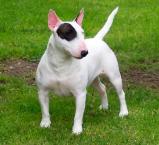
This is a placeholder text
Group text
by LiPope on 05 March 2021 - 08:03
I am wondering if anyone has specific bloodlines linked to cddy/ivdd type i ivdd?
Has anyone dealt with this with your German Shepherd? Did you see negative affects?
I know embark for breeders tests for it... but many "breed specific trait tests" do not.
Dogs, in appearance, have shorter legs in comparison to their body.
Thank you so much in advance for your input!
by Rik on 05 March 2021 - 08:03
I had to do the google for IVDD.
by astrovan2487 on 05 March 2021 - 09:03
I can’t find anything stating GSDs can have CDDY, IVDD type 2 on the other hand is extremely common in the breed. All of the breeds I'm seeing listed have short legs in proportion to the body as a normal physical trait.
I think the OP is asking specifically about CDDY IVDD type 1 not just IVDD, there is significant difference between the two types.
by GSDHeritage on 05 March 2021 - 09:03
This has some detailed Information and Breeds at Risk.
https://www.akcchf.org/educational-resources/library/articles/overview-of-intervertebral.html
by LiPope on 05 March 2021 - 13:03
I've met a German Shepherd that was not proportioned right, and she did have the trait according to Embark. I am just wondering if anyone has an idea if there's specific lines that carry this?
I've done my own research, but have not found and linkage to lineages (for instance, the Quarter Horse "Impressive" was a lead contributor to passing HYPP in the horse world).
by astrovan2487 on 24 March 2021 - 21:03
Testing Summary
The chondrodysplasia trait test reliably determines if a dog has one of the following genotypes:
cd/cd
This dog carries two copies of the cd allele which is found in dogs with normal, typical leg length. However, the actual leg length of the dog is a result of a combination of factors including variants in other genes. This dog will pass one copy of cd to 100% of its offspring.
Interpretation: Likely typical leg length
CD/cd or CD/CD
This dog carries at least one copy of the CD allele, the variant associated with chondrodysplasia (short legs) in some breeds. This test cannot distinguish between dogs that have one (CD/cd) or two copies (CD/CD) of this variant. However, because this mutation is dominant, only one copy of the CD allele is necessary to produce short legs. The actual leg length of the dog is a result of a combination of factors including variants in other genes. This dog will pass the CD allele to 50% of its offspring if it carries a single copy of CD or to 100% of its offspring if it carries two copies of CD.
Interpretation: Likely short-legged (may be typical leg length carrier)
Detailed Summary
Leg length is one of the traits that varies significantly among dog breeds. The characteristic short-legged trait of some breeds is referred to as chondrodysplasia but is also known as short-limbed or disproportional dwarfism. The trait is found in many breeds including the Dachshund, Pekingese, Corgi, and Basset Hound. Chondrodysplasia is inherited in an autosomal dominant manner and is associated with an insertion of a duplicate copy of the FGF4 gene (known as a retrogene insertion) on chromosome 18. It is thought that this mutation causes premature activation of other growth factor receptors leading to early calcification of the long bones resulting in limbs with a short and curved appearance. Although many breeds of dog with short legs carry two copies of the mutation, some carry only one or none, suggesting that there are other genetic factors responsible for short legs in other breeds.
Testing Tips
The chondrodysplasia trait test evaluates a dog’s DNA FGF4 gene for the presence of the “CD” variant that is associated with short legs in some breeds of dog. Dogs that inherit one or two copies of the FGF4 mutation (CD/CD or CD/cd) are likely to have short legs whereas dogs that inherit two copies of the cd variant (cd/cd) are likely to have legs of typical/normal length. This specific test, as performed on the Canine HealthCheck, accurately detects the presence of the “CD” variant, however, it cannot distinguish between dogs that carry one or two copies of this mutation. NOTE: This mutation is different from the mutation associated with intervertebral disc disease (IVDD) and chondrodystrophy on canine chromosome 12. In some breeds that carry both the chromosome 12 and chromosome 18 mutations associated with short legs, breeders that desire to maintain the short-legged trait while avoiding IVDD may be able to utilize genetic testing to maintain the chromosome 18-associated short leg trait while breeding away from the short leg trait associated with IVDD on chromosome 12.
Contact information Disclaimer Privacy Statement Copyright Information Terms of Service Cookie policy ↑ Back to top




